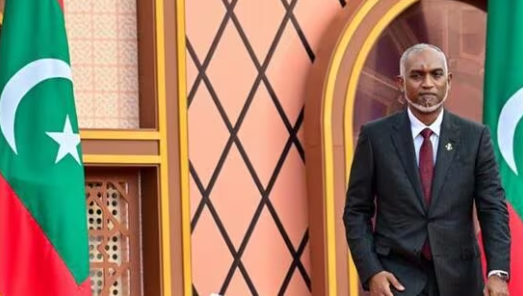In a surprising turn of events, New Delhi appears to have given a cold shoulder to the Maldives’ plans for President Ibrahim Mohamed Solih’s visit to India. The diplomatic gesture, or lack thereof, has left many speculating about the reasons behind the strained relations between the two neighbouring nations.
Sources close to the matter suggest that the Maldives had proposed President Solih’s official visit to India as part of diplomatic efforts to strengthen ties and discuss mutual concerns. However, the response from Indian authorities has been notably reserved, leading to a diplomatic standoff that raises questions about the future of India-Maldives relations.
While official statements from both governments are yet to be released, insiders point to various factors that may have contributed to the apparent diplomatic frostiness. Among the speculated reasons are regional geopolitical shifts, differing stances on key issues, and divergent foreign policy priorities.
Maldives, traditionally seen as a close ally of India, has been forging strategic partnerships with multiple nations, including China. This diversification of diplomatic ties has raised eyebrows in New Delhi, where concerns about China’s growing influence in the Indian Ocean region persist.
Experts suggest that India’s cautious approach may also stem from differences in the two nations’ perspectives on certain global and regional issues. The divergent positions on matters such as climate change, trade policies, and regional security could be contributing to the strained relations.
The diplomatic tension comes at a time when both countries face common challenges, including the ongoing COVID-19 pandemic and the economic fallout. Many had hoped that President Muizzu’s visit would serve as an opportunity to strengthen cooperation on shared concerns.
Analysts emphasize the need for open communication and dialogue between the two nations to address any underlying issues and prevent further deterioration of relations. The India-Maldives partnership has historically been crucial for regional stability, and any discord could have far-reaching implications.
As the situation unfolds, diplomats and analysts will closely watch for official statements from both governments to gain insights into the reasons behind the perceived cold shoulder. The delicate dance of diplomacy in the region continues, with the hope that mutual interests will ultimately prevail over any short-term tensions.








 India
India












